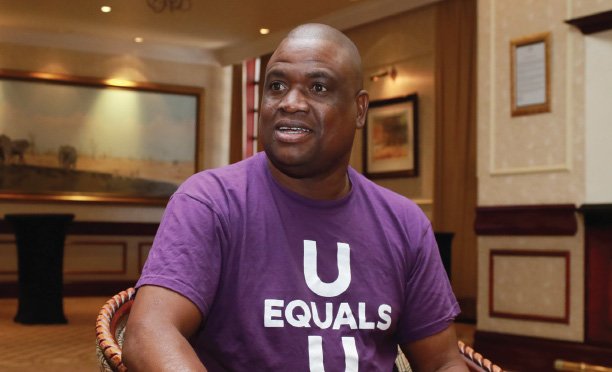HIV/AIDS CURE IN OUR LIFETIME
Advocacy Officer at the Center for Youth of Hope (CEYOHO) and AVAC Fellow, Kennedy Mupeli, has a lot of hope that a cure for HIV/AIDS will be found in this lifetime.
“We have had successful stories on HIV treatment but that only reduces the number of new infections. Now when you factor in the tremendous expense and the pressure on patients including side effects, you get to appreciate how a cure should remain an important goal.
“We just need to have committed resources, sharing of information and really bringing the brightest of minds from all over the world,” he said. He highlighted the importance of empowering communities and taking them through the developments to avoid challenges such as ART adherence. “We need to be able to break down the hard science of cure so that they can understand what we are talking about”, he said.
What gives Mupeli the greatest hope however is the Undetectable equals Untransmittable (U=U) movement in which scientific consensus has united around the concept that being undetectable means being unable to transmit HIV.
“This I believe is one of the entry points in getting to the cure. The science of U=U gives me so much hope that if you are effectively on treatment and not able to transmit HIV, to me it says we will get to a point in the near future, where our bodies will not need the drugs anymore. This is a very important message for people to understand and embrace”.Until such a time a cure is found, Mupeli explains that there is still need to continue taking treatment irrespective of one being virally suppressed because there are still resting cells in the body where the virus is hiding that can be reactivated anytime.
“The difficulty in dealing once and for all with HIV is that, unlike other viruses, HIV-infected cells are able to “hide” by entering a resting phase that makes them invisible to the immune system and current treatment therapies. “These ‘latently infected’ cells then exist in reservoirs in the bodies of those with the virus, and can launch new, resistant attacks if treatment is discontinued”. Over the last few years, scientists have determined that destroying this last reservoir of cells will be the future of a cure.
Mupeli was speaking to The Midweek Sun on the sidelines of an Advocacy-For-Cure Academy organised by the Towards an HIV Cure initiative of the International AIDS Society (IAS), in partnership with AIDS Vaccine Advocacy Coalition (AVAC) at AVANI hotel this week.The three-day training is meant to provide HIV/AIDS advocates with training and skills building on current HIV cure research strategies, barriers to a cure, and communicating scientific results accurately, especially to communities.
It is also to create opportunities for interactions with leading researchers and advocates in the field with a view to expanding the network of advocates working in HIV cure. The academy is the first of its kind to be held in Southern Africa and according to Jessica Salzwedel, Programme manager - Research Engagement at AVAC, Botswana became the host of choice because of the strong HIV cure research and commitment to HIV/AIDS fight.
“Cure research is just emerging while prevention and treatment research have a strong advocacy and they have been able to push the science and implementation of products forward. “Cure really doesn’t seem to have that but trials are beginning to happen”. There are currently 46 clinical trials going on globally.




